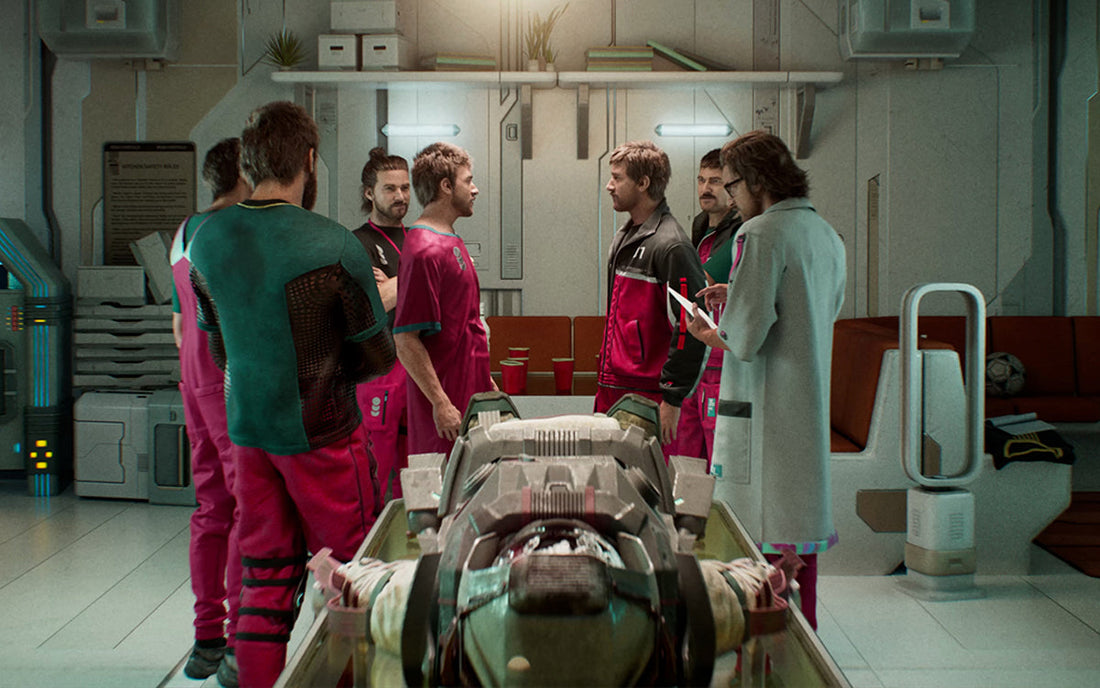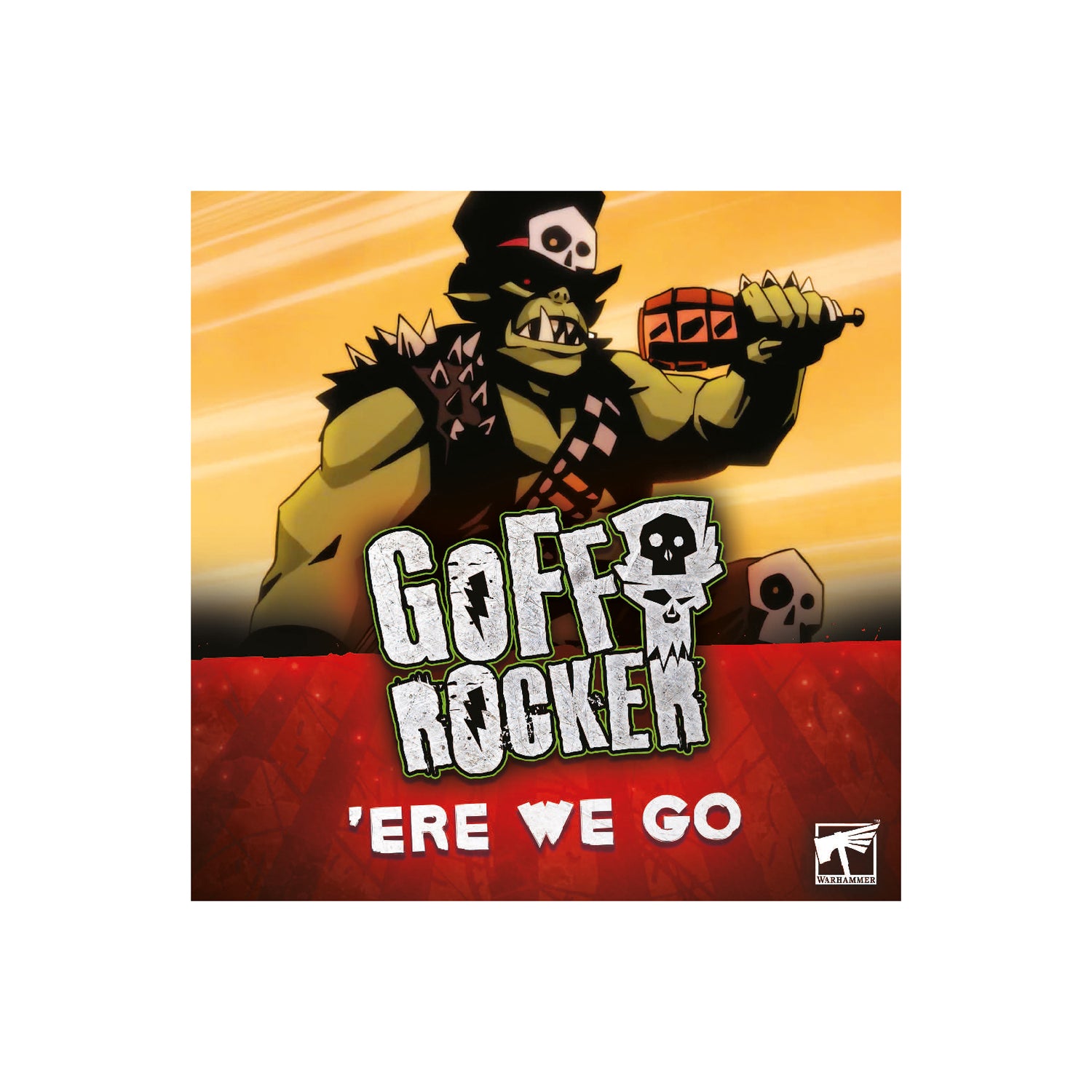
Composer Piotr Musiał on The Alters' Multiplicity of Creative Goals
Since the launch of This War of Mine just over a decade ago, video game scores by Piotr Musiał have garnered international critical recognition.
By Jerry Jeriaska of The Ongaku
In 2018, the composer was invited on to write original music for CD Projekt RED's The Witcher 3 expansion "Blood and Wine." 11 bit studios' strategy game Frostpunk debuted a short time later, featuring the musician's celebrated orchestral soundtrack.
More recently, the Frostpunk 2 development team was named The Game Awards' winner in the category of simulation or strategy, while Musiał's music earned him multiple awards and nominations, including the Game Audio Network Guild's prize for Best Music in an Indie Game.
This period in 11 bit studios' history marked a critical inflection point, wherein the company sought to tackle new challenges by branching out into an original IP. In this introduction to the music of The Alters, Musiał offers insights into a multifaceted creative endeavour, requiring immersive in-game music, an album highlighting the score's most evocative motifs, and a vocal track encompassing dozens of variations.
Don't miss Part 1 of this interview: "Frostlands Revisited: Piotr Musiał on Composing Frostpunk 2 Original Soundtrack"
The Alters Original Soundtrack premiered alongside the game's summer launch
The Prologue: Music Systems for Heightened Immersion
11 bit studios director Tomasz Kisilewicz offered Musiał the job of scoring The Alters hot on the heels of Frostpunk 2. The composer traveled seventy minutes by train from his home in Łódź to the company's Warsaw headquarters. In place of an elevator pitch, Kisilewicz had a prototype of the intro prepared, letting the experience speak for itself.
"I knew nothing about the game. Before they invited me to play, they didn’t throw in any spoilers," Musiał says of his first impression of the third-person science fiction survival game.
“Discovering what the game was about was a real wow moment. The whole concept of creating alternative versions of yourself felt very fresh, and really drew me in, instantly. These maybe two hours of playing made me love the game, already. I was thinking about the music the whole time on the way back to my home. I drafted 'The Alters' theme almost instantly afterwards!"

Protagonist Jan Dolski seeking shelter from deadly solar radiation within the base
To serve the dramatic needs of the Prologue, the composer collaborated with the development team on implementing responsive music systems. Blocks of abstract, verging on ambient score are triggered as protagonist Jan explores the terrain of an uninhabited planet's surface. How the score unfolds depends on whether the player has Jan plow ahead or double back to explore.
"Like many parts of the game, the Prologue opening is musically scripted from top to bottom,” the composer explains. ”For a short sequence that takes several minutes to play, it’s packed with twelve minutes of interacting blocks of music that trigger upon players' progress into the level."
A conscious effort was required to arrive at a distinctive sound to match The Alters' focus on the character of Jan. "You are playing as Jan and you are experiencing the story, the planet, the base from Jan’s perspective," the composer points out. "This gave us the opportunity to make the score more immersive, rather than illustrative like in Frostpunk 2—a major difference between those soundtracks."

Jan surveys the planet surface, gathering resources to maintain the base
The soundtrack album's intro track "The Alters" was the first composition Musial wrote for the game. While it was initially intended to accompany the Prologue's climax, a new track titled "Project Dolly" was created from scratch to synch up with the interstitial cinematic cutscene.
"[11 bit studios] liked the concept of using voice as something that could reoccur in the soundtrack," the composer mentions, "To me, lending my voice felt like making it more personal. I felt closer to the project. Of course, my voice in the score only exists in a heavily processed form. Most of the time you may not recognize it’s there."
The instrumentation of "The Alters" music track incorporates these organic elements—namely, strings samples and Musiał's own voice—that are treated to music processing techniques to synthesize an alien echo of a familiar sound. One motif Musiał designed is a "synthetic ostinato" making use of a tape effect to lend it a "wobbly" quality.
"The Alters" synthetic ostinato can be heard at the 40-second mark
"When you see the base from the top of the hill in the Prologue, it’s the first time this motif presents itself," he explains. "It has this unstable quality to it. The pitch of each note is a little off, and it's off by a random amount."
When Jan learns of the threat of solar radiation on the planet's surface, the soundtrack cues a French horn, utilised in a continuous slide across different pitches.
"I mixed French horn samples with a wobbly reverb to make it feel very spacious and almost like a synth," Musial says. "This signature glissando becomes an indicator of danger in the game—letting you know something’s wrong. Landing on a strange planet, dealing with it all, must have been an overwhelming moment for [Jan]. He doesn't know his way, yet. He’s feeling lost, and the score enhances that."
The composer decided to highlight a selection of the most driving, melody-driven tracks for The Alters Original Soundtrack. The game's introductory sequence features few of the soundtrack's central thematic motifs, allowing players to experience Jan's alienation and grow more acclimated to the situation as the story progresses.
"The score starts rather abstract," Musial says of the Prologue. "And as the story unfolds, Jan gradually finds his way. By Act 3, he knows what he's doing. He has a plan. Everything comes together by bringing back all the musical motifs."
The Alters: genetic twins of Jan, whose memories are modified to reflect an alternate life path
The Album: Highlighting the Score's Driving Motifs
At the tail end of the Prologue, the player encounters the music track "Running in Circles." As with "The Alters," there is a repeating motif, exhibiting a circular pattern. Here, the tempo is slower, perhaps imbued with a sensation of wilful forward progress.
"This is the music that plays between chapters, while traveling to new biomes,” Musial says of the motif, which he patterned after a visual cue. "The point of this theme ostinato is that it's basically the representation of the circular base. When you go into Journey 1, you see the base moving. The first thing you’ll hear in the music is the motif going round and round."

The circular shape of the modular base inspired the synthetic ostinato
One prominent aspect of The Alters' sound design adds an element of personification to the resource deposits Jan mines to generate Alters. Dubbed "glitch crystals" by the developers, the otherworldly resource known as "Rapidium" exhibits the strange property of bending time.
To portray this extraordinary phenomenon sonically, Musial designed two layers of sound. The pairing can be observed within the composer's "Rapidium Theme," created exclusively for the soundtrack album. The track is comprised of audio cues associated with the Rapidium deposits encountered within the game, inspiring its own standalone music track:
"You can hear this bassy, synth 'voice' almost calling you, when you are near a Rapidium deposit. It leaves an echo, that feels like a trace or shadow. This is accompanied by another, ambient layer, made of time-bent live recorded strings sequences, and scrambled voice lines of Jan, drowned in reverb. There’s another interactivity going on here in the music, as the bassy layer only plays near the deposits when there’s still something to mine, and stops when depleted."

The "Alternate Life Paths" theme can be heard while browsing Jan's backstory, displayed by the QC
Through the use of the Quantum Computer located in the base, Jan can simulate forks in the road of his life's story. A timeline is displayed visually in the QC as a branching "Tree of Life," alongside alternate biographies that are ingrained in The Alters' memories.
Musial says of "Alternate Life Paths," "I like mixing synthesizers with organic elements. While at the Quantum Computer, a cloud of ambients based on processed strings recordings create an almost dreamy background for a slow synthesizer motif. However, all you experience in the game are short orchestral snippets that play as you look into memory nodes.”
Upon reflection, Musial views three compositions as key to establishing the design of the score: "Both for me and the developers, 'Theme of Rapidium,' 'Alternate Life Paths' the Alters’ song were the three most important elements. It took quite some time getting these right."
Accolades Trailer, via 11 bit studios
The Song: Recording "What If" with Alex Jordan & Tomasz Kisilewicz
'The Witcher Live in Concert' tour premiered earlier this summer at the Polish National Opera in Warsaw, featuring a specially arranged rendition of Musial's composition. The live orchestration included selections from the original score, composed by Marcin Przybyłowicz, Mikolai Stroinski, and folk band Percival Schuttenbach.
Just days later, as The Alters release date approached, 11 bit studios held their hands-on event. There, the composer presented onstage. At the same event, Jan's voice actor Alex Jordan—the voice of Mr. Hands in Cyberpunk 2077: Phantom Liberty—took part in press interviews.
"[Alex] absolutely loves the game," Musial mentions. "I can imagine why. It's Alex’s magnum opus! All of those creations of the same person—same, but different."
Musiał gave a talk on the music of The Alters at 11 bit studios' Hands-On Event '25
Among the creative goals Musial and Jordan celebrated was the creation of a song, requested by The Alters' director early in development. Kisilewicz, a fan of musicals, came up with the concept of the Alters singing together. The director himself would play a central role in the undertaking, both collaborating with scenarist Katarzyna Tybinka on the lyrics and performing motion capture for all the Alters.
"I told them I would love to have a song on the soundtrack, maybe for the credits,'" Musial recalls. "They told me, ‘Hold on. There's this specific moment in the game where The Alters sing a song. We want to make them create the song themselves, and that’s where you come in.'"
Which assortment of Alters are present during the song, titled "What If," depends entirely on the choices made by the player up until that point. Jordan, despite not having a musical background, was given two days' notice prior to singing all the parts.
What If? - The Alters Official Music Video
"I drafted a simple guitar song with a piano melody," Musial says, entrusting the guitar parts to Frostpunk 2 sound designer Krzysztof Lipka. "It’s a spontaneous moment. The Alters use whatever stuff they have in the kitchen to play on – cutlery, cans, or they just clap. I recorded these sounds from random items I had in reach at the moment."
"Alex even suggested which Alter should be actual singer material and which one should be totally out of tune. He did such an amazing job!"
In addition to the alternate variations that can transpire in-game, there is also an 'impossible' version that was recorded. "We have more Alters on the soundtrack than it's possible to have in the game, at that moment," Musial explains. "In total, there's 89 versions."
The Alters is currently available for PlayStation 5, Xbox Series X|S with Game Pass, Windows through Steam, GOG, and the Epic Games Store.
Piotr Musiał is a composer and frequent collaborator on 11 bit studios productions – piotrmusial.com | Spotify Artist Page - | x.com

